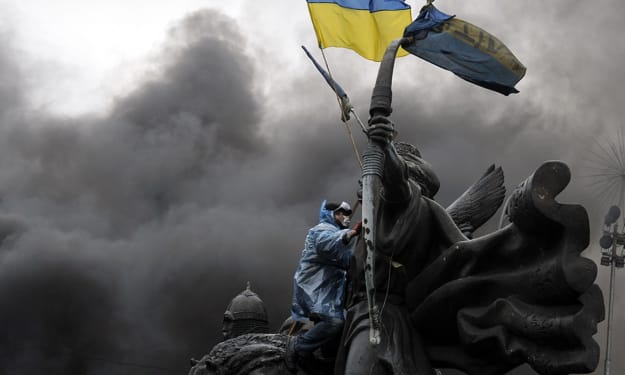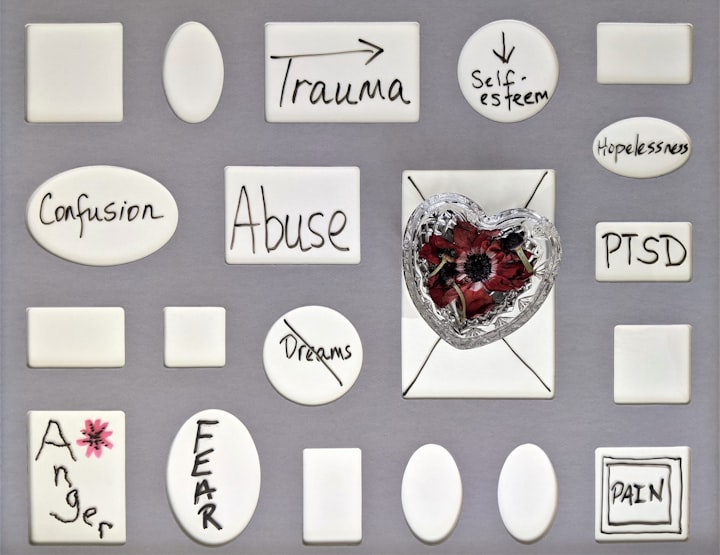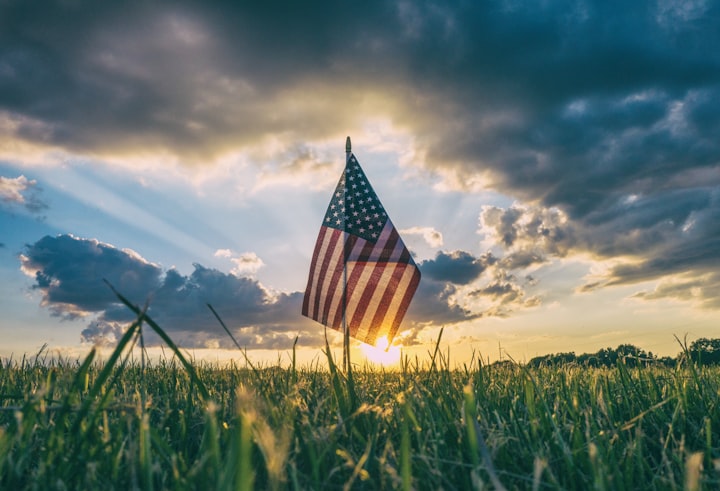Poppycock!
How did remembering the war dead turn into a culture war?

Last week, here in the UK, I saw a social media post that sarcastically anticipated the onset of poppy-themed face coverings in the UK, as if such things were something to sneer at. And, even though I understand the various issues the writer has with poppies, I found it quite a condescending and deeply ignorant statement, if I'm honest, and an example of the yearly culture war that goes on every year, centred on the wearing of poppies/not wearing of poppies/colour of poppy warn/attitude to war etc.
The Poppy Appeal was started after the First World War by a French woman, Madame Anna Guerin. The idea was much the same as it is today, whereby the poppy was worn to remember the fallen and the funds raised from sales went to the aid of those whose lives were damaged by the war. Interestingly, when Madame Guerin started her appeal, the primary target of this was children who had been orphaned or had their homes devastated. Today, in the United Kingdom, the poppy appeal is organised by the Royal British Legion, with the money going to similar causes. In addition to this, there is a silence held every year on the 11th November to remember the fallen. It all sounds very straightforward.
Except it isn't. In recent years, around this time of year, I see a rise in news articles detailing the controversy around beliefs and actions with regards to poppy culture. One of these is the so-called "Poppy Nazis." An ironic term for them in the UK, these are people who will outwardly demand to know why you aren't wearing a poppy, or at least do as much with their eyes. These people just go through life looking for ways to judge others. I honestly think they get a kick out of it, and the poppy season gives them plenty of opportunities. Now, I, for one, do support the Royal British Legion Poppy Appeal, but because I like wearing wristbands, I always buy the wrist band. Prior to this exciting stage in my fashion evolution, I used to buy the regular poppy, but I never wore it at work because I work in a restaurant, and it is a food safety issue. I accidentally stabbed myself with the pin so many times as well that it was starting to develop into a symbol of destruction rather than remembrance. Either way, I have at various points fallen victim to Poppy Nazis, despite the fact that I actually wear one.
I don't really appreciate being judged like this, and wouldn't either even if I didn't wear a poppy. And I wouldn't judge others the same way. And that is why I think it a bit unfair that (I'm not entirely sure that this is true, but I think it is, or certainly used to be) institutions such as the BBC or the premier league enforce the wearing of it. I choose to wear one, but it's a bit muddled to enforce the wearing of one.
There is controversy, too, around the idea of a silence for memorial. One way this happens is when people accidentally have their phone go off or speak or something during the silence. I hardly think that the majority of these people are doing so deliberately, but the vilification of such mistakes would suggest otherwise. And then there's the controversey surrounding the many other memorial silences we have for other catastrophes, such as aaccidents or terrorist attacks. Some may argue that this creates a two-tier system of grief, whereby it becomes awkward to think some tragedies are worthy of a silence and others aren't. My Dad argues that instead, when we fall silent on remembrace day, we should remmeber the dead from all tragedies throughout history and recent times. I would contest both these views, however. I think to consider that there are too many silences is reading into it a little too deeply, and I think to ban all silences except once a year would have the opposite affect, diminishing the idea of remembrance day as remembering the war dead. I don't see a problem with this, especially as the war dead are essentially, a result of our own failings as a human race, and nothing else.
In recent years, there have been two more poppies appearing alongside the red poppy. One is the purple poppy, a symbol of remembrance for all the animals killed during wartime. A perfectly acceptable thing to do I would say. Many people wear them alongside another poppy. I'm sure I remember working with someone who wore only a purple poppy and not a red one, because they "cared about animals, not people." Not exactly a viewpoint I can say that I share or indeed fully understand, but, as I say, each to their own.

The other poppy you may see now is the white poppy, a symbol of peace. Likewise, many people wear it alongside the red one, but many choose it as an alternative, feeling the red one is reminiscent of imperialism, or a political symbol condoning war. I understand this idea, but as the history of the poppy appeal shows, this simply isn't what the red poppy stands for, and nor is it what the funds raised by its sales go towards. So I have a similar issue with people who judge others for the wearing of the red poppy in the same way Poppy Nazis judge people for not wearing once, like, for example, the writer of the sarcastic post that started me off on this train of thought. It honestly astounds me that a symbol of remembrance, whatever its colour, can literally become a catalyst for conflict. But then I think about the shouty, judgy, over-the-top political world we live in and I realise why. I'm sure Donald Trump was British he would be a Poppy Nazi, and I'm equally sure his critics would suggest his wearing of one was a pro-war symbol. The culture wars creep into many aspects of society, but it makes me very sad that they have crept into the process of remembering the people we have lost to actual wars.

One thing I did have to square in my mind was the idea of wearing the poppy as a kind of virtue-signalling, something I am not remotely fond of, and something I see a lot of these days. As if it's to say, "look at me, I support this charity. I'm a good person." But looking into the history of the appeal I've realised that it isn't like that at all. The prevalance of poppies everywhere during this time of year serves a as a stark reminder of the Green Fields of France, where so many young victims of humanity's injustice to itself lie dead. It's not virtue-signalling at all, it's a mass effort to really try and keep them alive in our memories forever. And I think maybe we should all try and think about that this time of year, whatever our opinion or the colour of our poppy or whether we wear one at all, instead of thinking about how best to judge everyone else for their own personal beliefs. About which we can't know much, really.
About the Creator
Matty Long
Jack of all trades, master of watching movies. Also particularly fond of tea, pizza, country music, watching football, and travelling.
X: @eardstapa_






Comments
There are no comments for this story
Be the first to respond and start the conversation.